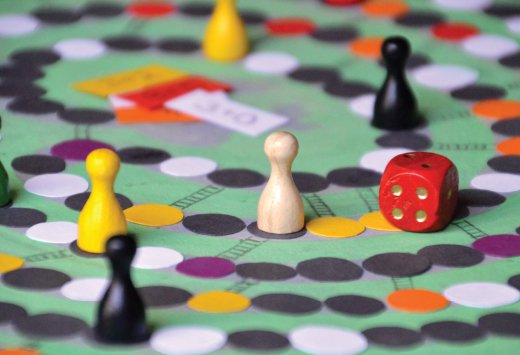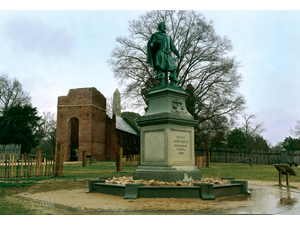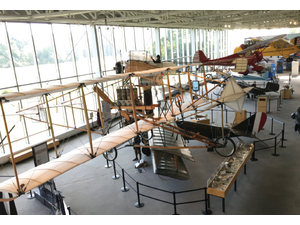×
By James Houck
Before the last bell of the 2018 school year rang, we asked local teachers how they’d like to see students keep their academic prowess up to speed during summer. Their answers are chock full of nifty ideas, projects, family activities, day trips, long trips, and recommendations for games, apps, and books—all of which can help make your child’s summer a most excellent adventure.
What types of activities (other than reading) do you recommend to your students
brto keep them engaged academically during summer?
“Write! Document your unique summer journey in a journal and ultimately illustrate and author your very own book. I encourage students to illustrate and write about all of their summer adventures from exploring local beaches to treasured visits with extended family members. By summers’ end, students are illustrators and authors of their very own book! They will have created an interesting storyline with familiar characters. Personal journals may include family trip highlights, nature observations, sun and fun activities, gardening tips, summer crafts, artwork, recipes, poetry or a combination of all of these. Fill your summer with a variety of activities and have fun!”—Susan Coughlin, St. Mary’s Elementary School
“Take a summer class in something you’ve always wanted to learn. Practice creative writing! It could be short stories, poems, graphic novels—just get those creative juices flowing!”—David Miller, The Gunston School
“I ask the students to practice math, language, spelling, and some logical thinking activities during the summer. I provide a review packet with fun learning activities in it and ask for it to be returned when we come back to school.”—Lucinda Williams, St. Paul’s Lutheran School
“Language summer camps (i.e. Concordia Language Villages). Traveling to a country where the target language is spoken. Learning songs from Youtube in the target language, or just using the multitude of websites available for language learners.”—Elizabeth Mortimer,
Notre Dame Preparatory School
“Explore the Hero’s Journey. One of the components of the curriculum I teach is Joseph Campbell’s Archetypal Journey, or The Hero’s Journey, which is a multi-step structure that most ancient myths follow as well as most Sci-Fi and Fantasy genre novels. Parents could pick a story that adheres to this journey, be it a picture book or chapter book, and then discuss with the child as you read together how it follows the stages and steps. If you want to take it to the next level, go see a popular Sci-Fi or Fantasy movie in theaters or rent one (A lot of classics like Star Wars, Disney Cartoons, and Marvel Super Heroes follow it) and watch it after to apply the same Hero’s Journey Stages to it, kids will love it!”—Sean Johnson, St. Anne’s School of Annapolis
“Find something that interests you and go out and do it. Summer is a time to focus on what you want to focus on—enhance your depth of understanding in an area you enjoy by reading or active engagement.”—Tom Mach, Archbishop Spalding High School
“Turn everyday activities into learning experiences. Talk about counting change, making a budget, and making change while at the store. Read signs when you drive in the car. Play rhyming games when you take a walk. Engage in conversations whenever you can. Making connections, thoughtful responses, waiting your turn, and listening to others apply to every subject!”—Julie Blyman, Radcliffe Creek School
“I advise students to participate in summer programs for high school students at colleges they’re thinking about attending. These are a great way to explore academic areas students are interested in pursuing and getting a feel for the schools themselves. Some of the more robust pre-college programs also give college credits to high school students for completing these programs. They could fall in love with a campus and the academic subject they studied. They could realize that particular college isn’t the right environment for them or that subject wasn’t as engaging as they had hoped. Either way, they’ll leave with a better sense of what that want out of their undergraduate experience.”—Kellee Webb, The Gunston School

Do you have any favorite education apps (apple, android, etc.) and/or games (online or board) that you recommend for your students?
“Board Games! Younger children: Busytown: I Found It, All Peaceable Kingdom Cooperative Games for Kids, Busytown Airport, Sequence for Kids, Chutes and Ladders, Candyland, Dominos, Go Fish, Old Maid, Memory. Older children: Ticket to Ride, Spy Alley, MindWare Lineup, Clue, Life, Monopoly, Mexican Train (a version of Dominos), Chess.” —Julie Gross, Kent School
“History Timeline is an interesting way to look at different historical events from around the world. Then there is always Netflix or other streaming services to watch interesting non-fiction.”—Tom Mach, Archbishop Spalding High School
“ABCYa, CoolMath4kids; Sheppardsoftware; Adapted Mind Math or Prodigy Math; PBSKids; Funbrain; Turtle Diary; brainzy.com.”—Lucinda Williams, St. Paul’s Lutheran School
“RAZ-KIDS: a comprehensive leveled reading resource which provides 800-plus leveled eBooks for students to practice at any time. L’Escapadou
brApps: all great for K–2nd beginning readers to reinforce reading foundation skills of segmenting and blending sound and letter sound associations.” —Susan Coughlin, St. Mary’s Elementary School
“Dream Box (math), Stack the States, Concentration, and OSMO-Tangram, Numbers, Letters.”—Karen Bennett, Kent School
“Duolingo is great for practicing English (or learning another language). Newsela is a great source for finding articles for students at any reading level.”—David Miller,
The Gunston School
“Make a bucket list of goals for the summer in regards of things you would like to learn about. Pick five concepts, places, people, animals, etc., that you would like to learn more about. Post the list prominently in your bedroom and make it your goal to check off that list by the end of the summer.”—Elizabeth Pennington, Notre Dame Preparatory School
I would recommend the following apps:
-Robot Factory by Tinybob: build and
brtest robots
-Toca Lab: Elements: discover and test elements on the
brperiodic table
-Busy Water: create mazes and escape
brroutes for fish. It seems really simple at first,
brbut gets progressively more difficult
I would also recommend the following board games:
-Rummikub
-Qwirkle
-Uno
—Terri Floccare, Boys’ Latin School of Maryland
What “summer field trips” would you recommend families to visit?
 “I always recommend connecting summer field trips (Friday Fun Days!) to books we’ve read. A visit to Chincoteague after reading Misty of Chincoteague or a visit to Utz Potato Chip factory after reading Leon and the Champion Chip. We are so lucky we live here. We can take a day trip
“I always recommend connecting summer field trips (Friday Fun Days!) to books we’ve read. A visit to Chincoteague after reading Misty of Chincoteague or a visit to Utz Potato Chip factory after reading Leon and the Champion Chip. We are so lucky we live here. We can take a day trip
brto Gettysburg or Washington, D.C., or Philadelphia. We have Fort McHenry, the Aquarium, and the Babe Ruth Museum just a short drive away.”—Terri Floccare, Boys’ Latin School of Maryland
“Summer trips that would be great are to the aquariums, science centers, hands-on experiences with STEM or Math, and cultural festivals.”—Lucinda Williams, St. Paul’s Lutheran School
“We have so many great resources around us: parks, beaches, the library, community activities, the zoo, Delaware Children’s Museum (Wilmington), Please Touch Museum (Philadelphia), theater (Chesapeake College has a great Children’s Series), and concerts. The opportunities are endless!”—Julie Gross, Kent School
“Any kind of community service trip!”—Maria Boote, Notre Dame Preparatory School
“When I go anywhere, I prefer to drive. If I am driving over a long distance, I look into any National Parks along with way to break up the trip. There are great historical sites locally and there is some real natural beauty in places you would not expect (Little River Falls in Alabama or Mammoth Cave in Kentucky are two that come to mind). Many of these parks are free and offer both a learning opportunity and space to stretch out on a long trip.”—Tom Mach, Archbishop Spalding High School
“Museums in D.C.; doing the Gargoyle tour at the National Cathedral (there is a gargoyle of Darth Vader), Mount Vernon, and Monticello.”—Valerie Devaris, St. Anne’s School of Annapolis
“Take a tour and explore primary sources at the Library of Congress. Sit in on Maryland General Assembly legislative sessions. Visit local Court Houses. Check out the New Harriet Tubman Museum in Dorchester County. Eastern State Penitentiary (Philadelphia, Pennsylvania). Explore America’s oldest prison and learn about the first wave of incarceration in the United States.”—Leon Schwartz, Wye River Upper School
 “Historical parks such as Williamsburg and Jamestown. Day trips to Washington, D.C. It is free and meaningful. Go camping and unplug for a few days. Pretty much anything as a family. Being together strengthens bonds and creates memories, especially if the trip involves an activity in which the family has to work together to achieve or accomplish something.”—Steve Roche, Boys’ Latin School of Maryland
“Historical parks such as Williamsburg and Jamestown. Day trips to Washington, D.C. It is free and meaningful. Go camping and unplug for a few days. Pretty much anything as a family. Being together strengthens bonds and creates memories, especially if the trip involves an activity in which the family has to work together to achieve or accomplish something.”—Steve Roche, Boys’ Latin School of Maryland
“Most importantly, engage in dialogue about your many wonderful experiences!”—Susan Coughlin, St. Mary’s Elementary School
Harbor Queen trip in Annapolis: narrated and great outdoor viewing opportunities
Pirate Adventures in Annapolis: great for imaginative play and social skills
Earth Treks in Columbia (and elsewhere throughout MD): climbing walls which are great for
brgross motor and fine motor skills, and also serves as a confidence booster
Clay Bakers in Annapolis: great for self-expression, fine arts, fine motor, and creative thinking
 College Park Aviation Museum: kids can fly in a flight simulation airplane, dress like a pilot, participate in an interactive demonstration on the laws of physics. It is very interactive and kid-friendly
College Park Aviation Museum: kids can fly in a flight simulation airplane, dress like a pilot, participate in an interactive demonstration on the laws of physics. It is very interactive and kid-friendly
NASA Goddard Space Flight Center in Greenbelt: the visitor center showcases all of the innovative and exciting work in Earth science, astrophysics, heliophysics, planetary science, and engineering
 Port Discovery Children’s Museum in Baltimore: the whole museum is interactive and educational. You could visit several times and never get bored
Port Discovery Children’s Museum in Baltimore: the whole museum is interactive and educational. You could visit several times and never get bored
—Erin Maley and Christiana Harris, St. Anne’s School of Annapolis
Lauren Child
A to Z Mysteries Series by Ron Roy
Geronimo Stilton
Who Would Win? Series by Jerry Pallotta
Who Was? Biography Series
Sharon Creech
Lemony Snicket
Blue Balliett
J.K. Rowlingbrbr
Before the last bell of the 2018 school year rang, we asked local teachers how they’d like to see students keep their academic prowess up to speed during summer. Their answers are chock full of nifty ideas, projects, family activities, day trips, long trips, and recommendations for games, apps, and books—all of which can help make your child’s summer a most excellent adventure.
What types of activities (other than reading) do you recommend to your students
brto keep them engaged academically during summer?
“Write! Document your unique summer journey in a journal and ultimately illustrate and author your very own book. I encourage students to illustrate and write about all of their summer adventures from exploring local beaches to treasured visits with extended family members. By summers’ end, students are illustrators and authors of their very own book! They will have created an interesting storyline with familiar characters. Personal journals may include family trip highlights, nature observations, sun and fun activities, gardening tips, summer crafts, artwork, recipes, poetry or a combination of all of these. Fill your summer with a variety of activities and have fun!”—Susan Coughlin, St. Mary’s Elementary School
“Take a summer class in something you’ve always wanted to learn. Practice creative writing! It could be short stories, poems, graphic novels—just get those creative juices flowing!”—David Miller, The Gunston School
“I ask the students to practice math, language, spelling, and some logical thinking activities during the summer. I provide a review packet with fun learning activities in it and ask for it to be returned when we come back to school.”—Lucinda Williams, St. Paul’s Lutheran School
“Language summer camps (i.e. Concordia Language Villages). Traveling to a country where the target language is spoken. Learning songs from Youtube in the target language, or just using the multitude of websites available for language learners.”—Elizabeth Mortimer,
Notre Dame Preparatory School
“Explore the Hero’s Journey. One of the components of the curriculum I teach is Joseph Campbell’s Archetypal Journey, or The Hero’s Journey, which is a multi-step structure that most ancient myths follow as well as most Sci-Fi and Fantasy genre novels. Parents could pick a story that adheres to this journey, be it a picture book or chapter book, and then discuss with the child as you read together how it follows the stages and steps. If you want to take it to the next level, go see a popular Sci-Fi or Fantasy movie in theaters or rent one (A lot of classics like Star Wars, Disney Cartoons, and Marvel Super Heroes follow it) and watch it after to apply the same Hero’s Journey Stages to it, kids will love it!”—Sean Johnson, St. Anne’s School of Annapolis
“Find something that interests you and go out and do it. Summer is a time to focus on what you want to focus on—enhance your depth of understanding in an area you enjoy by reading or active engagement.”—Tom Mach, Archbishop Spalding High School
“Turn everyday activities into learning experiences. Talk about counting change, making a budget, and making change while at the store. Read signs when you drive in the car. Play rhyming games when you take a walk. Engage in conversations whenever you can. Making connections, thoughtful responses, waiting your turn, and listening to others apply to every subject!”—Julie Blyman, Radcliffe Creek School
“I advise students to participate in summer programs for high school students at colleges they’re thinking about attending. These are a great way to explore academic areas students are interested in pursuing and getting a feel for the schools themselves. Some of the more robust pre-college programs also give college credits to high school students for completing these programs. They could fall in love with a campus and the academic subject they studied. They could realize that particular college isn’t the right environment for them or that subject wasn’t as engaging as they had hoped. Either way, they’ll leave with a better sense of what that want out of their undergraduate experience.”—Kellee Webb, The Gunston School

Do you have any favorite education apps (apple, android, etc.) and/or games (online or board) that you recommend for your students?
“Board Games! Younger children: Busytown: I Found It, All Peaceable Kingdom Cooperative Games for Kids, Busytown Airport, Sequence for Kids, Chutes and Ladders, Candyland, Dominos, Go Fish, Old Maid, Memory. Older children: Ticket to Ride, Spy Alley, MindWare Lineup, Clue, Life, Monopoly, Mexican Train (a version of Dominos), Chess.” —Julie Gross, Kent School
“History Timeline is an interesting way to look at different historical events from around the world. Then there is always Netflix or other streaming services to watch interesting non-fiction.”—Tom Mach, Archbishop Spalding High School
“ABCYa, CoolMath4kids; Sheppardsoftware; Adapted Mind Math or Prodigy Math; PBSKids; Funbrain; Turtle Diary; brainzy.com.”—Lucinda Williams, St. Paul’s Lutheran School
“RAZ-KIDS: a comprehensive leveled reading resource which provides 800-plus leveled eBooks for students to practice at any time. L’Escapadou
brApps: all great for K–2nd beginning readers to reinforce reading foundation skills of segmenting and blending sound and letter sound associations.” —Susan Coughlin, St. Mary’s Elementary School
“Dream Box (math), Stack the States, Concentration, and OSMO-Tangram, Numbers, Letters.”—Karen Bennett, Kent School
“Duolingo is great for practicing English (or learning another language). Newsela is a great source for finding articles for students at any reading level.”—David Miller,
The Gunston School
“Make a bucket list of goals for the summer in regards of things you would like to learn about. Pick five concepts, places, people, animals, etc., that you would like to learn more about. Post the list prominently in your bedroom and make it your goal to check off that list by the end of the summer.”—Elizabeth Pennington, Notre Dame Preparatory School
I would recommend the following apps:
-Robot Factory by Tinybob: build and
brtest robots
-Toca Lab: Elements: discover and test elements on the
brperiodic table
-Busy Water: create mazes and escape
brroutes for fish. It seems really simple at first,
brbut gets progressively more difficult
I would also recommend the following board games:
-Rummikub
-Qwirkle
-Uno
—Terri Floccare, Boys’ Latin School of Maryland
Read Theory
brreadtheory.org
Ten Marks (math)
brtenmarks.com
Xtra Math
brxtramath.org
Khan Academy (math)
brkhanacademy.org
Newsela (for current events)
brnewsela.com
—Detra Watson, St. Anne’s School of Annapolis
brreadtheory.org
Ten Marks (math)
brtenmarks.com
Xtra Math
brxtramath.org
Khan Academy (math)
brkhanacademy.org
Newsela (for current events)
brnewsela.com
—Detra Watson, St. Anne’s School of Annapolis
What “summer field trips” would you recommend families to visit?

brto Gettysburg or Washington, D.C., or Philadelphia. We have Fort McHenry, the Aquarium, and the Babe Ruth Museum just a short drive away.”—Terri Floccare, Boys’ Latin School of Maryland
“Summer trips that would be great are to the aquariums, science centers, hands-on experiences with STEM or Math, and cultural festivals.”—Lucinda Williams, St. Paul’s Lutheran School
“We have so many great resources around us: parks, beaches, the library, community activities, the zoo, Delaware Children’s Museum (Wilmington), Please Touch Museum (Philadelphia), theater (Chesapeake College has a great Children’s Series), and concerts. The opportunities are endless!”—Julie Gross, Kent School
“Any kind of community service trip!”—Maria Boote, Notre Dame Preparatory School
“When I go anywhere, I prefer to drive. If I am driving over a long distance, I look into any National Parks along with way to break up the trip. There are great historical sites locally and there is some real natural beauty in places you would not expect (Little River Falls in Alabama or Mammoth Cave in Kentucky are two that come to mind). Many of these parks are free and offer both a learning opportunity and space to stretch out on a long trip.”—Tom Mach, Archbishop Spalding High School
“Museums in D.C.; doing the Gargoyle tour at the National Cathedral (there is a gargoyle of Darth Vader), Mount Vernon, and Monticello.”—Valerie Devaris, St. Anne’s School of Annapolis
“Take a tour and explore primary sources at the Library of Congress. Sit in on Maryland General Assembly legislative sessions. Visit local Court Houses. Check out the New Harriet Tubman Museum in Dorchester County. Eastern State Penitentiary (Philadelphia, Pennsylvania). Explore America’s oldest prison and learn about the first wave of incarceration in the United States.”—Leon Schwartz, Wye River Upper School
“Anything historic! Wherever they travel for vacation, try to find an interesting historic site to check out!”
—Jenny Poitras, Notre Dame Preparatory School

“Most importantly, engage in dialogue about your many wonderful experiences!”—Susan Coughlin, St. Mary’s Elementary School
Harbor Queen trip in Annapolis: narrated and great outdoor viewing opportunities
Pirate Adventures in Annapolis: great for imaginative play and social skills
Earth Treks in Columbia (and elsewhere throughout MD): climbing walls which are great for
brgross motor and fine motor skills, and also serves as a confidence booster
Clay Bakers in Annapolis: great for self-expression, fine arts, fine motor, and creative thinking

NASA Goddard Space Flight Center in Greenbelt: the visitor center showcases all of the innovative and exciting work in Earth science, astrophysics, heliophysics, planetary science, and engineering

—Erin Maley and Christiana Harris, St. Anne’s School of Annapolis
Pre-K through Elementary School
brbrAudrey WoodLauren Child
A to Z Mysteries Series by Ron Roy
Geronimo Stilton
Who Would Win? Series by Jerry Pallotta
Who Was? Biography Series
Sharon Creech
Lemony Snicket
Blue Balliett
J.K. Rowlingbrbr
The Magic Tree House Series by Mary Pope Osborne
Judy Moody/Stink Series by Megan McDonald
Mercy Watson Series by Kate DiCamillo
Owl Diaries Series by Rebecca Elliot
Fly Guy Presents Series by Ted Arnold
Jack Prelutsky
Pete the Cat Series by James Dean
Greg Pizzoli
Judy Moody/Stink Series by Megan McDonald
Mercy Watson Series by Kate DiCamillo
Owl Diaries Series by Rebecca Elliot
Fly Guy Presents Series by Ted Arnold
Jack Prelutsky
Pete the Cat Series by James Dean
Greg Pizzoli
Middle School
Wendy Mass
Jack Gantos
Fish in a Tree by Lynda Mullaly Hunt
I am Princess X by Cherie Priest
Going Vintage by Lindsey Leavitt
Jack Gantos
Fish in a Tree by Lynda Mullaly Hunt
I am Princess X by Cherie Priest
Going Vintage by Lindsey Leavitt
High School
A People’s History of the United States by Howard Zinn
Christopher Columbus’ Journal
The Radioactive Boy Scout by Ken Silverstein
Origins by Dan Brown
The Pitcher by William Hazelgrove
Courage & Defiance: Spies, Saboteurs, and Survivors in WWII Denmark by Deborah Hopkinson
Colleges That Change Lives by Loren Pope
Bruiser by Neal Shusterman
The College Solution by Lynn O’Shaughnessy
Cool Colleges by Donald Asher
American Born Chinese by Gene Luen Yang
Girl in Translation by Jean Kwok
The New York Times
Washington Post
Wall Street Journal
Christopher Columbus’ Journal
The Radioactive Boy Scout by Ken Silverstein
Origins by Dan Brown
The Pitcher by William Hazelgrove
Courage & Defiance: Spies, Saboteurs, and Survivors in WWII Denmark by Deborah Hopkinson
Colleges That Change Lives by Loren Pope
Bruiser by Neal Shusterman
The College Solution by Lynn O’Shaughnessy
Cool Colleges by Donald Asher
American Born Chinese by Gene Luen Yang
Girl in Translation by Jean Kwok
The New York Times
Washington Post
Wall Street Journal